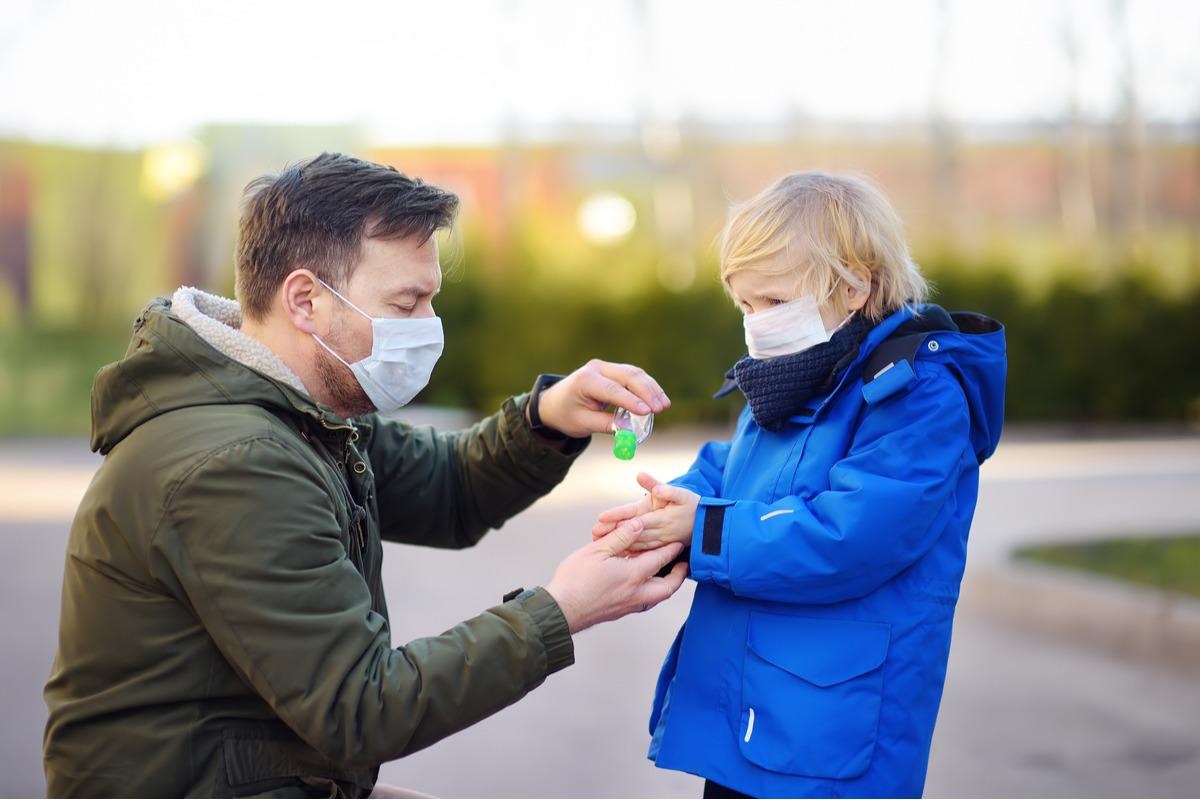The impact of the current coronavirus disease 2019 (COVID-19) pandemic on children has not been significant, with very few developing moderate to severe infections.
In contrast, the elderly and people with comorbidities are considered to be the vulnerable groups, as they are prone to be severely infected with the severe acute respiratory syndrome coronavirus-2 (SARS-CoV-2) virus, the causal agent of the pandemic.
 Study: Immunology of SARS-CoV-2 infection in children. Image Credit: Maria Sbytova/Shutterstock
Study: Immunology of SARS-CoV-2 infection in children. Image Credit: Maria Sbytova/Shutterstock
Background
Globally, the majority of children, those aged less than 18 years, mostly experienced an asymptomatic infection or mild COVID-19. As stated above, this age group rarely required hospitalization for COVID-19 infections. A small number of children who were severely infected with SARS-CoV-2 had underlying health issues such as respiratory, neurological, or immune disorders.
In April 2020, a post-infectious syndrome called multisystem inflammatory syndrome in children (MIS-C) emerged in individuals less than 21 years of age. The majority of patients with MIS-C required intensive care for the treatment of acute complications.
It is imperative to elucidate the age-related determinants of the spectrum of clinical outcomes in children and adults infected with COVID-19. This information would help formulate proper treatment and prevention measures to protect the global population from SARS-CoV-2 infection.
Recently, researchers have published a review in Nature Immunology that has focused on the key principles of developmental immunology associated with immunobiology and the clinical impacts of COVID-19 infections in children and adults.
The authors stated that as severe SARS-CoV-2 infection and MIS-C are rare events in children, the sample size of the studies available is limited. To overcome this limitation researchers emphasized the results that are common and dissimilar across published studies. The following sections focus on the basic differences between the pediatric and adult responses to SARS-CoV-2 infections.
How do children respond to SARS-CoV-2?
(a) Asymptomatic to mild infection
To date, all the available studies have revealed that both adults and children respond similarly to asymptomatic or mild COVID-19. Three studies have shown that the viral loads in both groups are comparable during asymptomatic infection. However, the viral load in the case of a mild infection was reported to be marginally lower in children compared to adults.
Another study indicated that the cytokine profiles of children with mild SARS-CoV-2 infection were similar to the profiles of healthy children. This result implied a low level of inflammation in children during mild infection. Scientists also did not find any differences in the percentage of interferon-γ (IFN-γ)-producing CD4+ or CD8+ T cells with T cell receptors (TCR) in asymptomatic children and adults. Research has shown that children, adolescents, and adults with mild infection exhibited similar levels of anti-spike IgG with comparable functionality.
(b) Moderate to severe infection
A significant difference was found between pediatric and adult immune responses in the case of patients who required hospitalization due to COVID-19 infection. Although the number of children infected with COVID-19 increased after the emergence of the Delta variant, the hospitalization period of children and adolescents has been significantly shorter compared to adults. This difference might be due to dissimilarities of the comorbid conditions (cardiovascular disease, diabetes, malignancies, renal failure, etc.), consumption of alcohol and tobacco, and obesity, between the two groups.
Factors associated with differential response to infection
Scientists reported that adults are vulnerable to severe COVID-19 infection due to issues in IFN signaling and disorders of T cell development functions. The decreased number and function of the T cell population have been associated with increased mortality from COVID-19 in older people.
When the SARS-CoV-2 virus reaches the respiratory mucosa, the spike (S) protein binds to the widely expressed angiotensin-converting enzyme 2 (ACE2) receptor and, subsequently, establishes infection. Two of the host proteases closely associated with SARS-CoV-2 infection are transmembrane serine protease 2 (TMPRSS2) and cathepsin L.
Researchers found an increased expression of TMPRSS2 in the airway epithelium of older age groups. RNA-sequencing studies from individuals, who were never infected by the SARS-CoV-2 virus but with a history of lung disease, demonstrated a positive link between age and the expression of ACE2 in alveolar cells. In contrast, insignificant expression of ACE2 was found in children. This explained why children are less vulnerable to COVID-19 infection compared to adults.
SARS-CoV-2 envelope (E) protein and S protein are recognized by Toll-like receptor 2 (TLR2) and TLR4, respectively. Activation of TLRs triggers a strong IFN response. However, several SARS-CoV-2 proteins, such as ORF9b, non-structural proteins 1 and 13, and the nucleocapsid protein, can inhibit the host IFN response.
Differences in IFN signaling have been reported in children and adults with COVID-19. Researchers found that SARS-CoV-2 infection in adults with severe COVID-19 exhibit reduced type I IFN secretion from plasmacytoid dendritic cells and declined levels of type I IFNs. In contrast, children show elevated expression of genes downstream of type I and II IFNs and the NLR family pyrin domain-containing 3 (NLRP3) inflammasome. A decreased IFN response has been found in adults above 65 years of age.
Immune cell activation in MIS-C
An elevated level of inflammatory cytokines (e.g., IFN-α, IFN-γ, IL-1β, IL-6,) has been associated with MIS-C. Several studies have also shown activation of myeloid cells in children with MIS-C, which results in an increased expression of CD64 on monocytes and neutrophils and alarmin-related genes. Compared to adults, natural killer cells have been found to be highly activated along with the expression of perforin and granzymes in children with MIS-C.